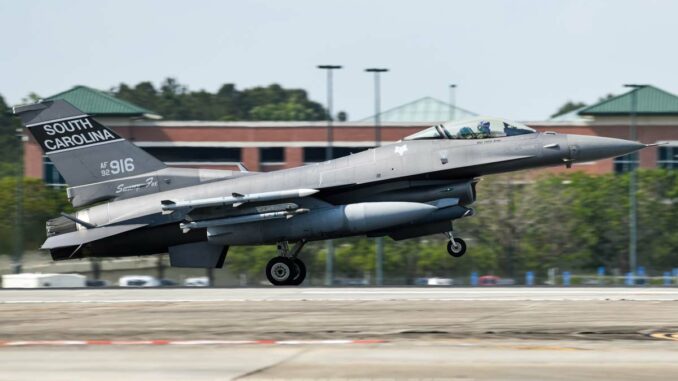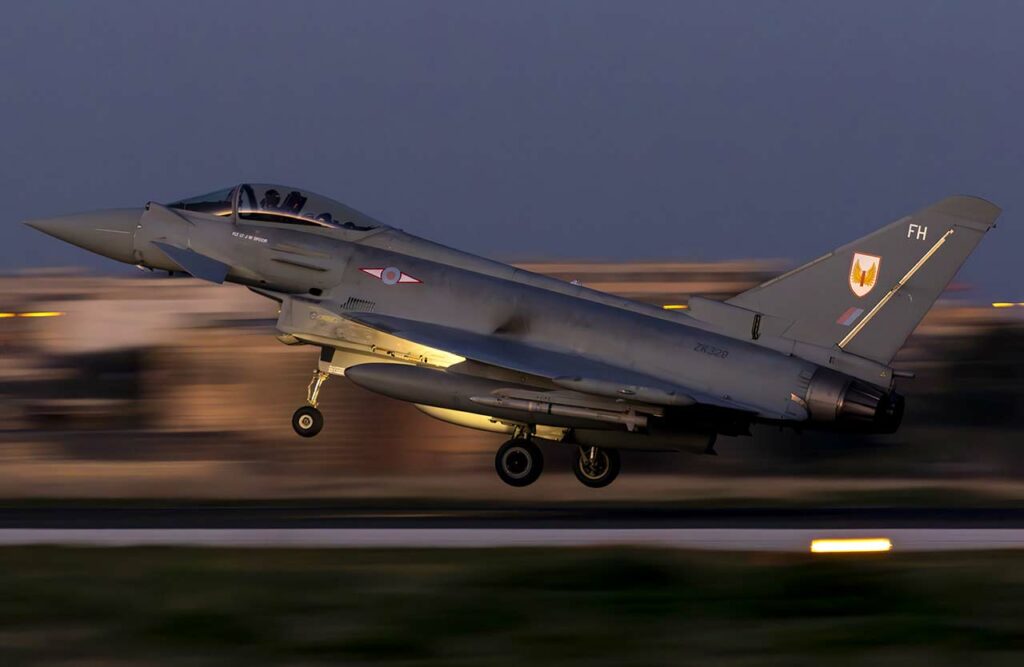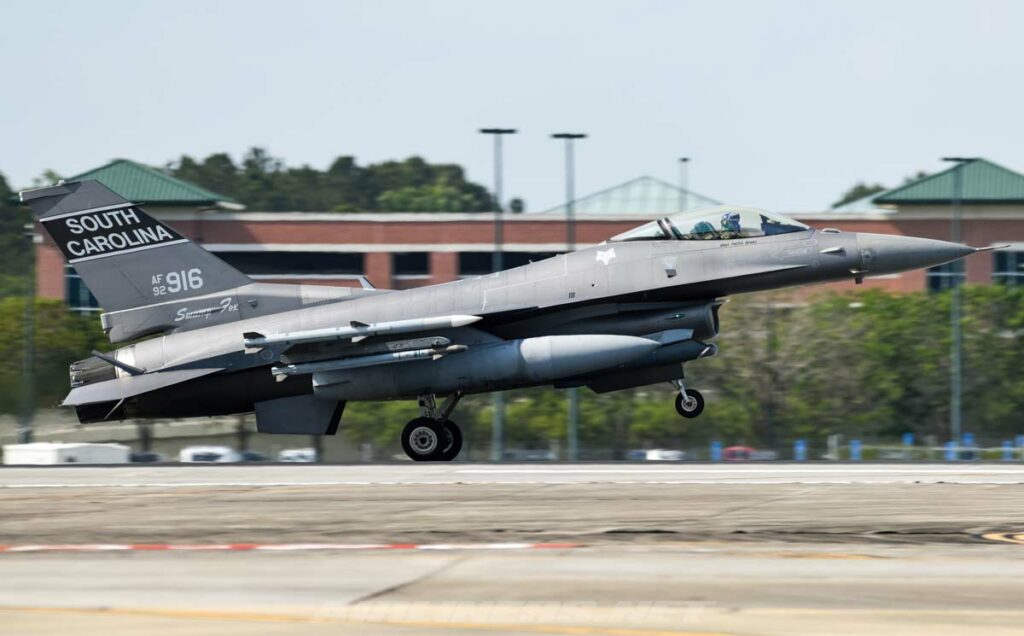
Turkey is considering the purchase of 40 Eurofighter Typhoons to make up its shortfall in fighter aircraft, while negotiating the purchase of new American F-16s. This strategic move is intended to bolster Turkey’s air capabilities until the arrival of their 5th-generation aircraft, the KAAN, scheduled for 2030, but it could encounter obstacles, particularly from Germany.

Background to Turkey’s proposed purchase
Faced with an imminent shortage of fighters, Turkey is considering the purchase of 40 Eurofighter Typhoons to fill the gap until the arrival of its indigenous 5th-generation aircraft, the KAAN, scheduled for 2030. This strategic choice is also influenced by geopolitical tensions with the United States, which have put an agreement on new F-16s on hold.
Turkey’s strategic duality
According to analysts, Turkey’s interest in the Eurofighter Typhoon serves a dual purpose. On the one hand, it could act as a strategic lever in negotiations with the USA for the acquisition of F-16s. Secondly, it could complement the F-16, depending on the outcome of these discussions. This testifies to Turkey’s determination to maintain strategic flexibility in its military acquisitions.
The stakes of German approval
The purchase process could, however, come up against obstacles, not least in Germany. Turkish Defense Minister Yasar Gular has indicated that the UK and Spain are trying to convince Germany to approve the sale. Germany has historically imposed restrictions on defense agreements with Turkey, which could prove a major obstacle.
Implications of the acquisition of the Russian S-400 system
Turkey’s acquisition of the Russian S-400 missile system is an example of its willingness to explore non-Western options when its Western allies block access to essential defense equipment. If Germany were to obstruct the Eurofighter deal, this could reinforce Turkey’s logic of seeking alternatives and validate its interest in non-Western defense markets.
Warning from Eurofighter manufacturers
Other developments in Germany could also influence Turkey’s bid for Eurofighters. Long-term production of the Typhoon is uncertain, with Airbus and the German trade union IG Metall demanding contracts for the Tranche 5 and Long Term Evolution (LTE), or risk closure of production in 2030.
International commitments to Eurofighter
Spain has committed to purchasing an additional 25 Eurofighter Typhoons under the Halcon 2 program to replace its Boeing EF-18 Hornets. The UK, via BAE Systems, maintains close links with Turkey, even collaborating with Turkish Aerospace on the design of the KAAN.

Potential consequences of Turkey’s purchase of the Eurofighter Typhoon
The potential acquisition of the Eurofighter Typhoon by Turkey could have several repercussions. It would strengthen the Turkish air fleet while awaiting the development of the KAAN, while offering a strategic alternative to the American F-16. However, this move could also complicate relations with Eurofighter partners, particularly Germany, and could lead Turkey to explore more non-Western options.
Turkey’s intention to acquire 40 Eurofighter Typhoons reveals a complex strategy aimed at strengthening its air capabilities while navigating a challenging geopolitical landscape. This choice reflects the need for Turkey to maintain flexibility in its defense options, in the face of uncertainties linked to agreements with the United States and potential European obstacles. The outcome of these negotiations could have significant implications for the balance of air forces in the region, and for Turkey’s relations with its Western and non-Western partners.
War Wings Daily is an independant magazine.